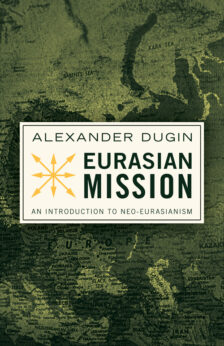Now I must say a few words about that which is the most offensive to dignity of all: vulgarity.
Vulgarity is, as the word implies, vulgar and is, of course, incompatible with a noble spirit. However, there are different degrees of nobility and within these, different ways of manifesting it, so it is not easy to set a general standard for what is noble and what is vulgar. As the saying goes, you know it when you see it. Regardless, I believe that there is a certain dignity that a human being must maintain in all circumstances, but if a tone that damages that dignity and is frowned upon by those with good character is recognized in a person’s unconscious words and actions, and the person in question seems to be unbothered by such a tone, then it is a sign that the person has lost his dignity. If it appears that the person is satisfied with such a tone, it is proof that he has somehow fallen prey to vulgar taste or else has been corrupted by a vulgar spirit.
Vulgarity is not necessarily the same as rudeness or coarseness, although it is, of course, characterized by its lack of refinement. Thus, in seemingly exquisite technical expressions, there are often those that seem to have gone to the limits of vulgarity. This can be seen in many examples of urban manners and various works that falsely bear the name of art. Immediately, I am reminded of the intentionally casual style found even in much of the fashionable, modern writing that is considered literary. Consider Amanda Gorman, the American poet laureate, who I will not give the dignity of quoting. The public’s taste and intellectual capacity have been so thoroughly diminished as to deem this drivel not only good but beautiful and inspiring.
Vulgarity can also be seen in the rather boastful tone of the leading discourse that takes pride in its own elevated status. There is a common poverty of thought, mainly due to utilitarianism and expediency, which lacks the ability to dream of true ideals and aims instead at hasty calculations and quick effects.
Therefore, even in matters of morality, which should be dignified by nature, there is a great contradiction in the spirit of advocating and promoting morality, which includes a vulgarity that should be abhorred, and yet somehow it is accepted with impunity. This vulgarity not only arises from utilitarianism and expediency, but is also often characterized by a weak sense of morality and unreflective conceit, accompanied by blatant exaggeration or unwitting self-deception.
Indeed, in the case of a posture that respects “morality,” it cannot always be said that such a posture is “moral.” This is where the great problem lies, for even if one believes in something like sacrificial acts, even if one truly believes in them oneself, if one has a secret expectation that these acts will be rewarded in some other way, then the act is not moral. It is self-indulgent. On the other hand, a spirit that strongly considers an act to be sacrificial, or at least dares to blow it up as a “beautiful story,” is a very low, if not “immoral,” moral consciousness. This is not to say that it is immoral, but it must be regarded as a very low level of moral consciousness.
Any action or project guided by such a moral outlook and moral consciousness will always scatter the most vulgar odor around, along with the empty and banal emotional tones of its expression. However, such an odor spreads easily, and many people become accustomed to it, eventually believing it to be the fragrance of morality. It is only on the basis of this falsehood that commercialism is linked to morality.
It would appear that politics has also often used this kind of commercial vulgarity as a means of guiding the masses, but in fact the vulgarity into which politics itself has fallen has tended to target only the masses. Leftist political advertisements, especially, are guilty of this, casting their opponents as anti-scientific, anti-intellectual troglodytes. The gist of all of this is, essentially, that their supporters are intelligent because they support a certain candidate or politicized issue. Among their supporters, and even among those on the margins, there is endless appetite for such pandering. Whenever a conservative or traditionalist figure makes even the most minor of blunders, he receives an onslaught of media coverage, as though a single misstep epitomizes his entire career. “Vulgar people take a huge delight in the faults and follies of great men,” wrote Immanuel Kant, “and great men are equally annoyed at being thus reminded of their kinship with them.” Ryūnosuke Akutagawa, himself no stranger to media scrutiny, expounded upon the matter in a more acerbic way, “There’s nothing to boast of in having discovered that the people are stupid. But to discover that we ourselves are also the people is in fact worth boasting about.”
Thus, vulgarity is not only a moral failing, but in general, in a comprehensive sense, without exception, indicates a dullness and lack of “cultural sense,” and the main cause of vulgarity in all phenomena is probably childishness, poverty, or even the deterioration of a unified sense of culture.Curiously, this unified sense of culture has little to do with the level of education or social status in the modern era.
For example, take an uneducated but intelligent young man living in a cottage in the mountains. He listens to a lecture by an imposing intellectual figure and, although he understands the speaker’s point and does not object in the slightest, he is puzzled by the tone and use of academic language, which he finds strange and perhaps irritating. It is possible that he would say he was embarrassed to be listening to the speaker. If you were to ask why, he could not give you an exact answer. This is already a fine “cultural sensibility.” In other words, it shows an intuition for accurately assessing a speaker’s culture. Perhaps he smelled a kind of vulgarity in the clichéd tone of the speech and the demonstrative use of language, and he thought this was surprising and even unpalatable.
One cannot say that the young man in the mountains is uncultured. In such a case, it should be remembered that “culture” in the proper sense of the word means to acquire these three conditions as a complete ability: efficiency, health, and dignity. These three things must be firmly planted in the present-day life of the nation as manifestations of culture. These three are mutually dependent on each other. In other words, to increase efficiency, it is important to have good mental and physical health; to maintain good health, one must lead an efficient life, and the quality of life is based on mental health. To have a good culture is to acquire the right kind of cultivation. Culture and cultivation are really means and ends, and being well-educated means not only having a high culture of one’s own, but also having the role of representing and leading the culture of a country.
The term “cultured person” has been used in the past to refer to a strange term. It differs from the terms “intellectuals” and “intelligentsia,” which seem to refer mainly to scholars, writers, artists, etc. – with a tendency towards thinkers engaged in what is generally termed spiritual labor. It was sometimes customary to refer to those engaged in other occupations as “cultured people,” especially if they were well-read or had developed what might be regarded as somewhat high-class tastes, and especially if they were lovers of literature and the arts. This is evidence of a very narrow and distorted conception of the word “culture.”
Moral lowliness is slightly different from being immoral or amoral. This, too, should be discussed in detail, but as the issue is somewhat off topic, we won’t go into it here. Strictly speaking, this is not the same as being artless or having no art, but instead refers to the presence of artistic elements but to a lesser degree. In other words, it means that the aim is to be beautiful, but to be at the bottom tier of beauty, i.e. in the negative. An obvious example is useless ornamentation. Another is intentionally ugly workmanship or art. The public seems to welcome this, and it is unfortunately safe to say that the majority of products are of this kind. There are many examples of this type of work in slightly elaborate houses, offices, hotels, and restaurants, and it would be fair to say that the majority of women’s clothing these days is of this type. Ugliness is fashionable. Of course, even the works of professionals who are called artists happen to be pseudo-artistic works that are not for sale. One instance of this trend is the veneration of graffiti as “street art” by the elites in America’s major cities, and the English pseudo-artist Banksy is another example.
This is the rampant prevalence of vulgar customs due to a low sense of beauty, but there are also vulgar customs that are the result of “scientific” childishness. This is also the case with superstition. With both science and superstition, people clothe themselves in their beliefs. These believers are largely untrained in any scientific field, but they nonetheless cling to what “experts” assure them is scientifically valid. This is done in such a way that no one can free them, least of all themselves. Even the truth is insufficient to set such people free, wrapped up in their beliefs as they are.
However, I have examined the nature of vulgarity from three angles – morality, art, and science – and this is only an attempt to analyze it in a way that is easy to understand, even though it is neither necessary nor quite possible to separate these three facets. Therefore, this is not enough to simply grasp the essence of vulgarity. The word “vulgarity” is, as the term implies, something to be despised, yet it has become a commonplace thing in the world, and this must be studied in the first place.
There are words such as “secular” and “mundane.” The latter word was originally used to refer to the ordinary citizens of the world, as opposed to those who were ordained as clergy, as “mundanes,” and was then used to mean “ordinary,” and has presently come to refer to the lowly and unrefined. The words “vulgar” and “vulgarity” in particular refer to the “vulgarity of the vulgar.” If that is the case, then where does the world’s vulgarity come from? “Will minus intellect constitutes vulgarity,” Schopenhauer wrote. This is an apt description of the vast majority of mainstream media, especially in the Anglosphere. I will refrain from citing specific examples, but in fact, I am worried that today, often in the name of public service, projects, and even their promotion, the vulgar give the impression of something harmless and mundane.
The danger of vulgarity, therefore, is that the public overlooks it as normal. On the other hand, when something that is not vulgar is regarded as noble, it seems to be a kind of inaccessible domain of specialists or special societies, and the common sense seems to prevail that such things are of no use in worldly affairs at the present time. Therefore, the words “lofty,” “elegant,” and “refined” were considered something of a distraction from substance and decoration, and even evoked a kind of clear, comical expression that typified aristocratic taste in the wrong sense of the word.
The Chinese idiom “elegance and vulgarity,” for example, does not imply vulgarity by itself, as opposed to “elegance and refinement,” because the word “elegance” itself does not imply vulgarity. This is because elegance itself is not something that should be respected as long as it is proud of its delicate beauty. However, when it comes to “vulgarity” as opposed to “elegance,” there is a clear conflict of values. This is because I believe that the taste for “heroic elegance” is the ideal form that symbolizes both classical European and the Japanese national style.
So, returning again to the issue of vulgarity, the true nature of the vulgarity prevalent in the world must surely be identified in ideal-less politics and utilitarian education (including schooling, society, and the family), as I have already mentioned, but from a social and psychological point of view, it is clear that this is not a problem of the individual. Clearly, this stems from the instinct of self-preservation, of individuals “trying to be in the majority,” or, to go one step further, from the paralysis of conviction that is seen in the herd mentality that “anything will be done if only the people will allow you to get away with it.” In short, I believe that it is a manifestation of the lazy and avaricious nature of people who have lost their spiritual pride, never mind their dignity, and are always trying to take the path of least resistance.
By the way, I believe that if the youth would first strongly hold on to this idea of excessive worldliness as being vulgar and fight against the world’s unawareness of it, the vulgar phenomenon that is currently sweeping the world would, if not cease to exist at all, at least not be so prevalent in public. I want to believe that this will eventually happen, but it is difficult to believe such a thing can happen.
If the dignity of culture is to be preserved, it is absolutely necessary for the soul of a pure young man to have the courage to pursue his longing for what is high, his love for what is beautiful, and his devotion to what is true, but at the same time to cultivate a sharp and rich cultural sense that can distinguish what is noble, beautiful, and true from what is false and ugly.
The veneration of our great traditions, which are unparalleled in brilliance, must be shown by our longing as subjects to dream of the ideal world, and by our unshakable will to achieve that longing, however many generations it may take.










The general reaction to Disney’s remake of The Little Mermaid gives me some hope. I do think the youth are reaching for something more, but don’t they always? If I eat less trash and watch less trash because I have fraternal Arktos dues to pay, I have already gained great rewards.